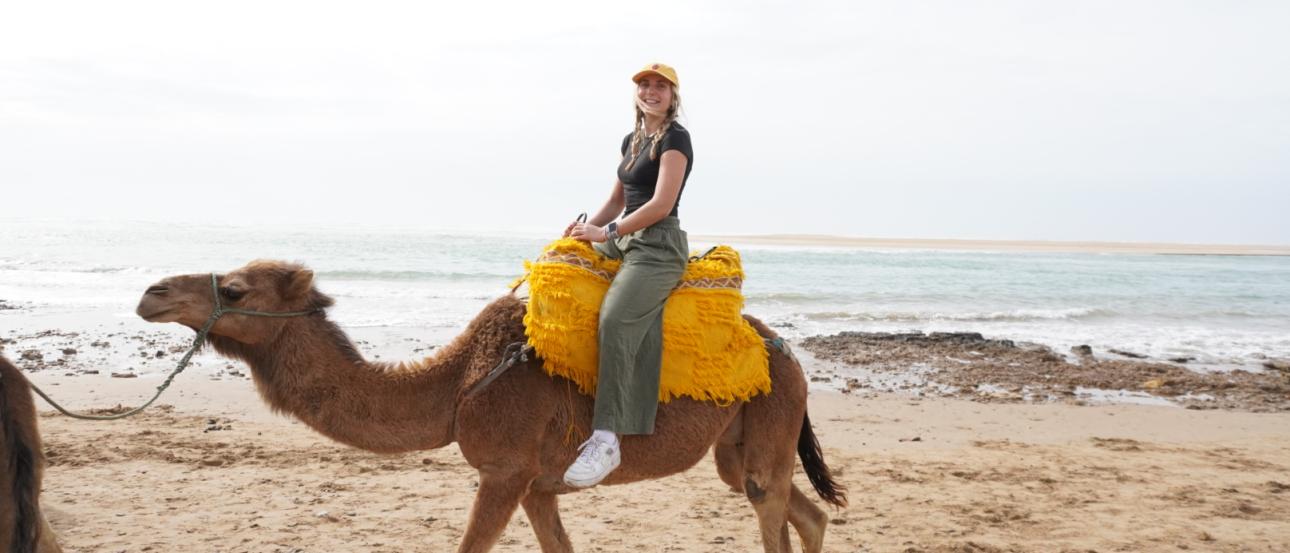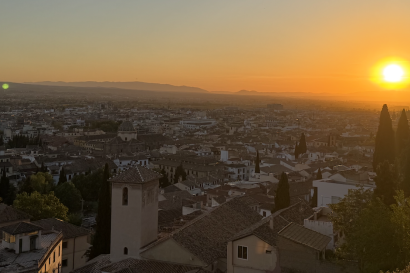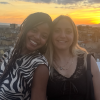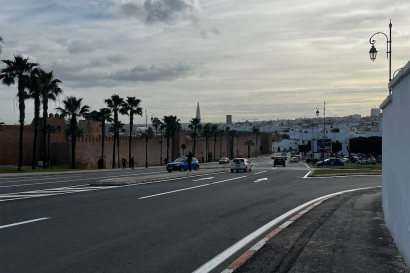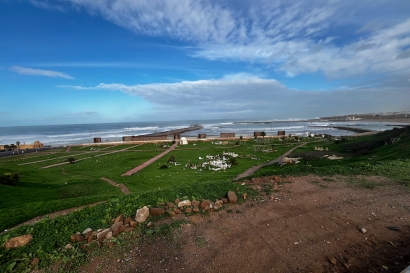If you ever get the chance to visit Morocco, go.
During our six-day journey through Northern Morocco, my classmates and I were embraced like family by some of the most generous, kind-hearted people I’ve ever met.
From the coastal city of Tangier to the blue streets of Chefchaouen, through Asilah, Rabat, and the Rif Mountains, each stop brought new perspectives and unforgettable moments.
First off, be a traveler.
The best advice I received on this trip? Be a traveler, not a tourist.
A tourist observes from a distance, focusing on what makes a place different from what they’re used to. But a traveler steps in with curiosity and humility, looking for connection and embracing the unfamiliar.
The Highlights.
I can’t possibly explain all the amazing things I experienced in Morocco, but here is a quick recap:
- I traveled with the best group — Shoutout to Vicky, Mustapha, and AL DJAJ!
- We rode camels along the coast near Asilah. Yes, I snuck in a second turn. Sue me.
- We volunteered at an NGO in Sidi Fatah, helping with gardening and painting a new mural!
- We visited a traditional hammam for a local bath experience. Iykyk.
- I learned how to write my name in Darija, نينا
- I was woken up at sunrise by the call to prayer and a very enthusiastic neighborhood rooster!
- We joined a henna party where two incredibly talented women designed stunning artwork for about 70 people in under an hour.
But the most meaningful part of the trip? Living with Hind, my host mom in Rabat.
When we arrived, Hind had our beds prepared and the best tagine, couscous, and mint tea I’ve ever tasted already simmering on the stove. That night, it came up that it was my roommate’s birthday. The next day, Hind and her neighbor surprised us with homemade cakes. We sang “Happy Birthday” in English, Spanish, and Darija, all laughing and clapping in her living room. It’s a moment I’ll never forget.
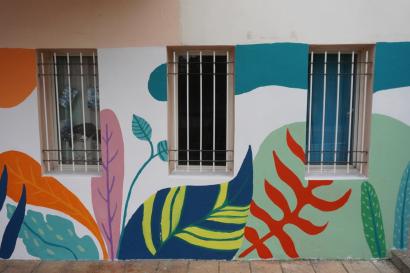
Culture shock.
Culture shock isn’t a bad thing—not even a little. It is one of the most important parts of studying abroad.
I went into this experience with a simple goal: to make new connections and understand a place I had never been. I told this to my professor (shoutout Vicky!), and she gave me a great piece of advice:
She said to go in with no preconceived notions. Ask questions out of curiosity, not judgment.
That mindset framed my trip. And honestly, the people I met along the way welcomed me with the same open-hearted curiosity.
So, be open to everything. Be open to using a Turkish toilet for the first time. Ask questions when a student casually says soccer is “a guy’s sport.” Be curious when someone asks you to explain the concept of cultural appropriation. These aren’t moments to shy away from—they’re moments to learn from and lean into.
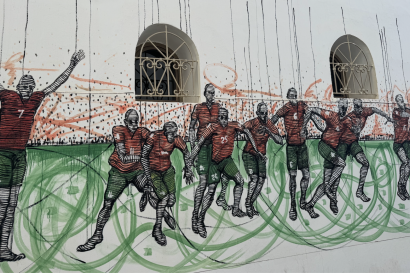
Some Key Takeaways
Gender:
Morocco surprised me in many ways, and one of the most thought-provoking was how gender roles and expectations showed up across different spaces. I saw both deep-rooted traditions and progressive ideals coexisting. And the dynamics changed depending on the place we visited or the people we talked to.
However, one moment that’s stayed with me was our visit to the Association Darna, an organization created by and for Moroccan women in Tangier. Both male and female students joined us for a discussion, but in the two hours of talking, almost all of the questions were answered by the one male student in our group. In that moment, I felt conflicted. I wanted to respectfully shift the dynamic to hear more from the women beside me, but I wasn’t sure how to navigate that. Especially in a cultural context where religion, tradition, and gender norms are deeply intertwined, I didn’t want to come off as judgmental or out of place.
I still think about that moment. In the appropriate setting, it is important to respectfully question the status quo. Next time, I want to find the courage to do so. Also, it's important to remember that one moment doesn’t define the entire experience. Every conversation is different, and one dynamic doesn’t speak for them all.

Food:
If you do anything in Morocco, eat. Tagines, pastilla, couscous, homemade bread, olives, sweet pastries, mint tea—always mint tea. Almost all of my favorite moments—whether with IES classmates or new Moroccan friends—happened around shared plates and long conversations.
Pro tip: At least once, put down your fork and dig in!
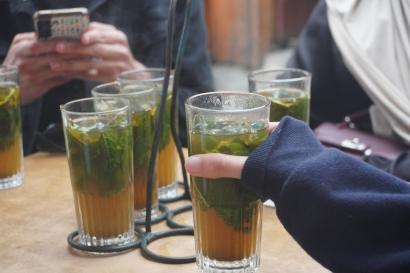
Language:
You know that old joke—“What do you call someone who only speaks one language? An American.” In Morocco, that joke became a reality. Everyone we met spoke at least three languages. Most people grew up learning Standard Arabic and Darija, plus French in school. Many also speak English, and in the north, Spanish is common too.
What amazed me most was how casually people switched between languages. Hind spoke to me in Spanish, then turned to her friend and translated our conversation into Darija. In Chefchaouen, shopkeepers bargained with me in Spanish. The university students we traveled with chatted with us in English, then switched to French or Darija when talking to each other. And Mustapha, our guide, effortlessly translated full conversations between English and Darija.
So, my advice? Don’t be afraid to try. Even if by the end of the trip all you know is the 15 words on your “traveling to Morocco cheat sheet” –- that is 15 more Darijan words than you knew before :)
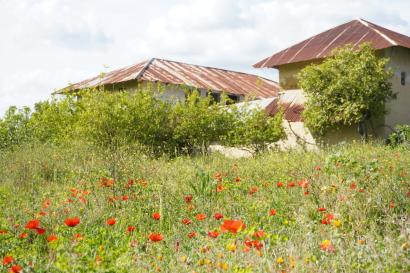
Empathy:
There’s something beautiful about the way compassion works in Morocco. Collective care is everywhere. Even the street cats—without official owners—are fed and looked after by the whole neighborhood. It’s a shared responsibility.
The people I met reminded me that empathy lives in the “little” big things, like when your host mom surprises the new student in her home with a plate of cakes for her birthday. That moment, and so many others like it, left a lasting mark on me.
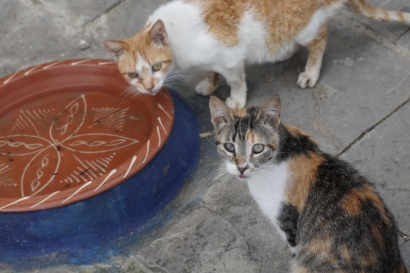
Final Advice
Be kind. Learn some Darija. Say “yes” to the unexpected. Be present. Bring a journal and write in it. Eat everything—but make sure you know how to say “shbaat, lhamdullah.” Trust me, you’ll need it :)
Most importantly, be a traveler, not a tourist. That’s when all the best things happen.
Shukran Morocco!
P.S. Thank you to my talented friend, Claudia Murvartian-Rhim, for taking so many of these incredible photos!

Nina Pollak
Hi everyone! My name is Nina and I am a student-student athlete at Trinity University in San Antonio, Texas. Two fun facts about me are 1) I have been playing soccer since I could walk, and 2) I am named after my mom's favorite singer, "Nina Simone"!
